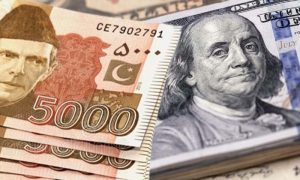GUANGZHOU: US Treasury Secretary Janet Yellen arrived in Guangzhou, China on Thursday for meetings to press Beijing over fears the country’s industrial subsidies for cars, green energy, and batteries could flood international markets with cheap products.
Her second visit to China in less than a year follows a phone call this week between President Joe Biden and Chinese leader Xi Jinping, where they clashed on US trade restrictions but said they hoped to stabilize ties.
With hours of bilateral meetings scheduled, working meals and a boat tour in Guangzhou, the purpose is to get Washington’s message to Xi’s inner decision-making circle, a Treasury official said.
Yellen also plans to speak with economic experts and the US business community in the city, according to AFP.
Top of the agenda will be Washington’s concerns over the competitive impact of spillovers Chinese subsidies can create in industries like electric and solar vehicles — key sectors the US has not ruled out putting up trade barriers to protect.
China’s Support for Aluminum, Steel
Beijing’s support for sectors like aluminium and steel in the past has led to substantial overinvestment and excess capacity that Chinese companies looked to export abroad at depressed rates, the treasury secretary said last week.
She warned that now, Washington sees excess capacity building in ‘new’ industries like solar, EVs, and lithium-ion batteries.
A senior Treasury official told journalists that Washington sees a rising share of companies that cannot cover their costs at the rates they are selling goods and noted a growing number of anti-dumping probes against China.
This week, the European Union (EU) announced investigations aimed at two Chinese-owned solar panel manufacturers accused of receiving subsidies.
Asked about Washington’s own subsidies for its clean energy industries, the Treasury official said US efforts do not risk flooding the international market, noting that the scale of Chinese subsidies is “much larger”.






















